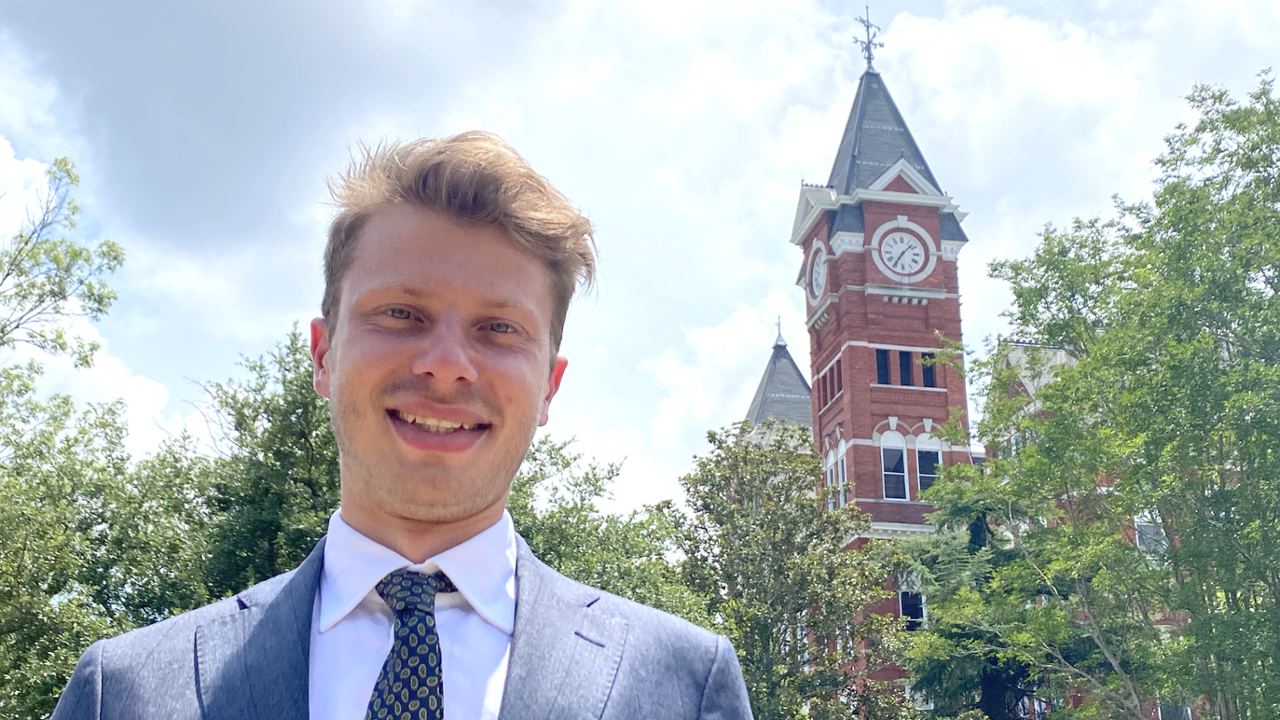Professor's research on helicopter acoustics earns grant from U.S. Army
Published: Nov 15, 2021 2:35 PM
By Joe McAdory
Noise produced by helicopter and commercial air taxi rotors is problematic in the skies above highly populated metropolitan cities. Umberto Saetti, assistant professor of aerospace engineering at the Samuel Ginn College of Engineering, is exploring solutions.
Working with colleagues from the Vertical Lift Research Center of Excellence (VLRCOE) at Penn State University, Saetti will lead a multi-task project that explores helicopter-related research initiatives. His task, “State-Variable Implementation and Linearization of Simulations with Multi-Disciplinary Aerodynamics,” will use high-fidelity rotorcraft simulations to make predictions of the acoustics of rotorcraft, which are expected to provide pilots with a better understanding of flight patterns that might generate less noise.
For his task in the VLRCOE research project, which is funded by the U.S. Army, Saetti was awarded a five-year, $571,000 contract.
“I am particularly proud of being awarded this contract because it builds upon my master’s and doctoral work, which were also funded by the Army through the VLRCOE program,” said Saetti, who recently completed post-doctorate work at Georgia Tech and joined the Auburn faculty this summer.
“The fact that the Army decided to fund this research is, in part, a recognition of the work done in the past years in this area, along with my now colleagues, and former advisors, Drs. Joe Horn and Ken Brentner at Penn State. Additionally, a contract of this magnitude gives me the opportunity to affirm myself as a thought leader in the rotorcraft research community, while still having the chance to collaborate with my alma mater, Penn State, and continue learning from leading figures such as Drs. Horn and Brentner,” he added.
Brian Thurow, chair of the college’s department of aerospace engineering, believes Saetti has a bright future at Auburn University.
“We are very excited to have Dr. Saetti join the Department of Aerospace Engineering as an assistant professor,” he said. “This grant marks an excellent start to a promising career with this work expected to play a critical role in the establishment of his laboratory. We are looking forward to watching his research in rotorcraft acoustics continue to grow and develop over the coming years.”
Saetti, whose research focused primarily on aircraft and rotorcraft flight dynamics and control, noted the study will initially be computational where numerical methods will be developed to allow for fast acoustic predictions.
“Once we are able to predict the noise for different flight trajectories, then we will move to piloted flight simulations in the laboratory stocked with multiple motion-based helicopter simulators based on virtual reality I’m building here at Auburn,” said Saetti, a recipient of the Barnes McCormick Memorial Scholarship, awarded by the Vertical Flight Foundation for outstanding accomplishments as a doctoral candidate in the vertical flight field.
Beyond the computational phase, Saetti’s research will move to labs adjacent to the Brown-Kopel Engineering Student Achievement Center, where Brunner motion-base flight simulators and TESLASUITS – which immerse users with haptic feedback that cue information to the pilot in innovative ways – will be utilized. The flight simulators are expected to provide a more realistic prediction of the flight dynamics, which in turns affects the prediction of rotor loads and acoustics.
This project, along with the recently established student chapter of theVertical Flight Society at Auburn, advised by Vrishank Raghav, assistant professor of aerospace engineering, will help inspire future generations through STEM outreach toward careers in the rotorcraft field.
“The curiosity of solving problems is what drives me, and if this can be useful for others then it’s certainly a plus,” Saetti said. “The ultimate goal for researchers is to develop tools for research that can be used in order to fully make an impact on society. Being able to make that impact is a great feeling. We’re trying to make helicopters, or rotorcraft in general, more accepted by the general public.”
Media Contact: , jem0040@auburn.edu, 334.844.3447
Umberto Saetti is working with the Vertical Lift Research Center of Excellence to study rotorcraft acoustics.

